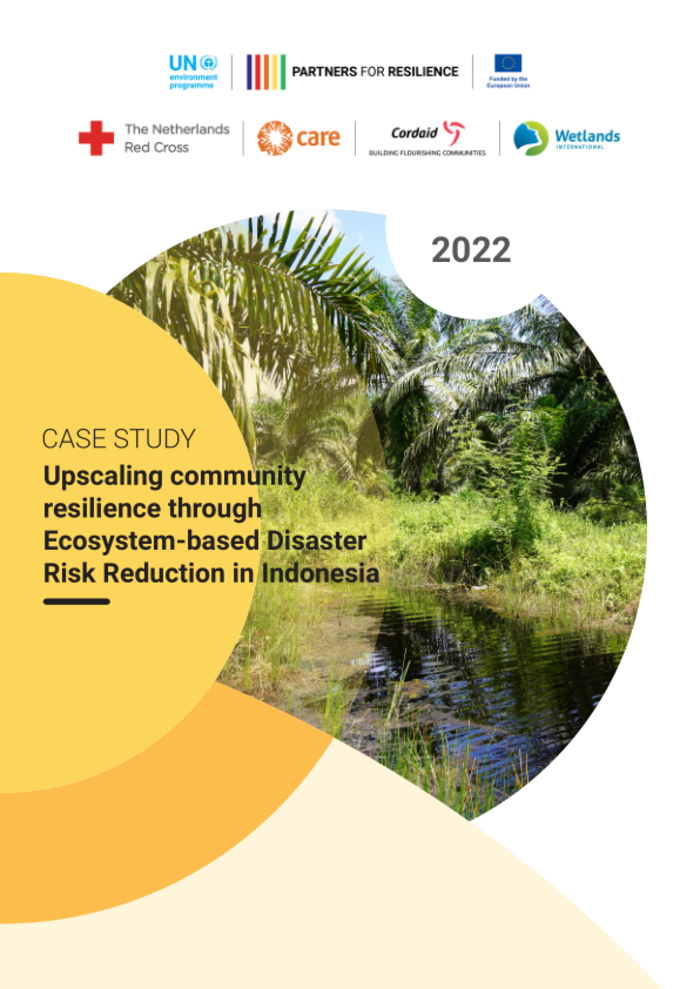EXECUTIVE SUMMARY
Since 2019, the United Nations Environment Programme (UNEP) in-collaboration with Partners for Resilience (PfR) have developed and implemented scalable Ecosystem-based Disaster Risk Reduction (Eco-DRR) models, working alongside various governments and their respective communities in strengthening their capacity and shaping Eco-DRR policy interventions.
This case study highlights Eco-DRR interventions in Indonesia focused on peatland restoration, conservation, and sustainable management. The key risk being addressed within this context is the fact that degraded peatlands are prone to fre and subsidence, and the latter results in prolonged fooding. To address this, the project aims to increase community resilience towards peat fre and peat subsidence, as well as enabling sustainable development through the implementation of Eco-DRR practices in peatland ecosystems in Indonesia. Specifcally, the project seeks to increase the adoption of Eco-DRR practices in peatland ecosystems that contribute to increasing community resilience.
A model for upscaling community resilience has been developed through three core components of Eco-DRR: Ecosystem Restoration/Protection, Disaster Risk Reduction, and Climate Smart Livelihoods. In Indonesia, there is a greater emphasis on DRR through the combined peatlands and fre management approach. The project also employs the concept of Integrated Risk Management (IRM) which integrates ecosystem management and restoration with Climate Change Adaptation (CCA) and DRR. The project implemented peatland restoration activities through Rewetting, Revegetation and Revitalisation (3R) of livelihoods with capacity strengthening and policy dialogues for DRR in peat ecosystems. For the community development process, an innovative fnancing mechanism called Bio-Rights is applied to create an incentive for the community groups to conduct peatland restoration and its sustainable management, while advocating for peatland management through national training guidelines. 27 CBOs have been trained on Eco-DRR and 4,505 benefciaries have been reached, of which 49% are women. A Cost-Beneft Analysis (CBA) performed by the University of Massachusetts Amherst demonstrated that the benefts of EcoDRR and resilience enhancement interventions outweigh the value of their initial costs.
This case study lays the foundation for demonstrating the need for large-scale implementation of Eco-DRR in advancing the implementation of the Sendai Framework for Disaster Risk Reduction and the Sustainable Development Agenda. The content for this case study has been developed by the United Nations Environment Programme (UNEP) in collaboration with Partners for Resilience (PfR) – a global alliance between the Netherlands Red Cross, the Red Cross/Red Crescent Climate Center, Cordaid, Wetlands International, and CARE along with partner civil society organisations in the countries where they work.

